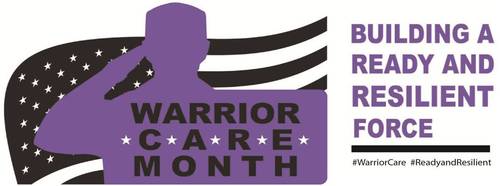Texas Medical Command makes transition easier for Wounded Warriors
By Capt. Martha C. Nigrelle
 The Medical Evaluation Board, or MEB, is known for being a long and arduous process. For traditional guardsmen, this process if often even longer and more difficult, but for wounded warriors in the Texas Military Forces (TXMF), in the last year the MEB process became much easier.
The Medical Evaluation Board, or MEB, is known for being a long and arduous process. For traditional guardsmen, this process if often even longer and more difficult, but for wounded warriors in the Texas Military Forces (TXMF), in the last year the MEB process became much easier.
According to Army Sgt. Gabriel Martinez, the Noncommissioned Officer in Charge (NCOIC) of behavioral health and assistant NCOIC of case management for Medical Command, in just one year, Medical Command, or Med Command, increased the number of packets submitted to the Medical Board by 200%.
After assuming command of Med Command in 2012, Army Col. John P. Drobnica, a licensed physician assistant, and Col. Robert Ferry, the Texas State Army Surgeon, spent their 2012 annual training period evaluating the Med Command system for submitting MEB packets. Their goal was to figure out a way to make the transition process easier for Texas Army National Guard wounded warriors. Ferry is the former Deputy Commander for Med Command, as well as, a licensed pediatric-endocrinologist. They are both traditional guardsmen who live and work in their communities as medical professionals.
“I really appreciate Col. Drobnica because he listened to us,” said Martinez.
Martinez went on to discuss how both Drobnica and Ferry took time to ask the Soldiers in Med Command what issues they saw and how they thought things could be improved. “[Drobnica and Ferry] went down into the weeds and said ‘how can we change the weeds?’”
“The biggest challenge, once [the service member] is injured, is getting them through the process,” said Lt. Col. Brian Weber, the Division Surgeon for 36th Infantry Division, Texas Army National Guard, also a licensed Physician Assistant.
Compounding an already long MEB process, before the packet is submitted, numerous doctor appointments and paperwork have to be completed. Additionally, according to Weber, this can become a confusing process.
“It’s all of the little steps – that is the biggest challenge,” said Weber.
Changes in Med Command’s process started with a trip to Florida, and continued with improvement in training, as well as the effective utilization of the medical readiness NCOIC.
“[Drobnica] took us to Pinella’s Park, Fla., where the National Guard MEB convenes to meet the providers who conduct the [initial review of the] MEB. We went three times. This helped us, in case management, leaps and bounds,” said Martinez.
Martinez went on to discuss the next step implemented – a mock MEB. Each month during Med Command drill, a panel of National Guard providers, with an array of medical background and expertise, review the packets assembled by case management as if it were the MEB.
“It’s where our full time support meets our M-Day support,” said Martinez, adding that the process has helped case management improve the quality of each MEB packet before it is submitted to Pinella’s Park.
Additional training was the next step taken to improve this process. Ferry oversaw the creation of the Texas Military Forces (TXMF) Provider Battle Book and User’s Guide. The book is tailored to the guardsman medical officer with little experience on TXMF systems and the MEB.
In addition to the battle book, training for the readiness NCO was added. Martinez said that this training has been instrumental in making the MEB process faster and smoother for the service member or wounded warrior. “Increasing the knowledge pool means there are more people that can help facilitate the process.”
The last change was fully integrating the medical readiness NCO with the MEB process. The medical readiness NCO is a full-time position at the battalion and/or brigade level and is focused to work one-on-one with the wounded warrior on their medical readiness to ensure that the MEB packet is initiated and completed as quickly and as accurately as possible.
Martinez credited Drobnica and Ferry for their leadership in implementing and enforcing all of these much needed changes.
For both Drobnica and Ferry, it is all about the mission – improving that transition process.
"We help people transition forward. Life moves forward, not backward,” said Ferry.
For questions regarding the MEB process in the Texas Army National Guard, call the unit Medical Readiness NCO or Case Management at 512-782-4206/5892.